 August 2022 in “Dermatology Online Journal”
August 2022 in “Dermatology Online Journal” Oral and topical tofacitinib can effectively treat severe hair loss with minimal side effects.
 July 2022 in “International Journal of Trichology”
July 2022 in “International Journal of Trichology” Tofacitinib helped an 8-year-old child recover from a type of hair loss that is hard to treat.
 March 2022 in “International Journal of Trichology”
March 2022 in “International Journal of Trichology” Tofacitinib may be effective for treating hair loss caused by alopecia areata that doesn't respond to other treatments.
 October 2021 in “Dermatology Reports”
October 2021 in “Dermatology Reports” Tofacitinib, a hair regrowth treatment, may worsen acne.
 January 2021 in “Anais do Congresso Brasileiro de Reumatologia 2020”
January 2021 in “Anais do Congresso Brasileiro de Reumatologia 2020” Tofacitinib improved arthritis and partially improved hair loss in a lupus patient without side effects.
 August 2020 in “Ugeskrift for Læger”
August 2020 in “Ugeskrift for Læger” A man with severe hair loss regrew all his hair using tofacitinib and stayed healthy for a year.
 August 2018 in “Journal of the American Academy of Dermatology”
August 2018 in “Journal of the American Academy of Dermatology” Tofacitinib is a potential alternative treatment for alopecia totalis, especially in patients with a shorter duration of the condition and more preserved hair follicles, but the overall response rate is low.
 April 2018 in “Journal of Investigative Dermatology”
April 2018 in “Journal of Investigative Dermatology” Topical tofacitinib is effective in promoting hair growth for non-scarring alopecia.
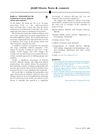 January 2018 in “Journal of the American Academy of Dermatology”
January 2018 in “Journal of the American Academy of Dermatology” More extensive trials are needed to understand tofacitinib's role in treating severe hair loss.
 June 2017 in “Journal of the American Academy of Dermatology”
June 2017 in “Journal of the American Academy of Dermatology” Tofacitinib is effective and safe for treating severe alopecia areata and related conditions.
 January 2016 in “The Australian Pharmacist”
January 2016 in “The Australian Pharmacist” Tofacitinib might be used to treat hair loss.
 24 citations,
October 2018 in “JAAD Case Reports”
24 citations,
October 2018 in “JAAD Case Reports” A woman's eyelash regrowth was successful using tofacitinib solution for alopecia areata.
 September 2023 in “Journal of the American Academy of Dermatology”
September 2023 in “Journal of the American Academy of Dermatology” Topical tofacitinib helped a man with severe scalp condition after other treatments failed.
 6 citations,
November 2022 in “Journal of autoimmunity”
6 citations,
November 2022 in “Journal of autoimmunity” JAK inhibitors like tofacitinib may effectively treat Alopecia Areata.
 3 citations,
January 2015 in “Nasza Dermatologia Online”
3 citations,
January 2015 in “Nasza Dermatologia Online” Some treatments for autoimmune hair loss work, but JAK inhibitors like tofacitinib are promising for regrowth.
 2 citations,
November 2014 in “The journal of investigative dermatology/Journal of investigative dermatology”
2 citations,
November 2014 in “The journal of investigative dermatology/Journal of investigative dermatology” Oral tofacitinib can treat both psoriasis and alopecia universalis by normalizing inflammatory pathways.
2 citations,
November 2007 in “Clinics in dermatology” Tofacitinib may be an effective and safe treatment for adolescent alopecia areata.
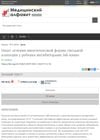 July 2024 in “Medical alphabet”
July 2024 in “Medical alphabet” JAK inhibitors like tofacitinib may effectively treat alopecia in children without major side effects.
 February 2024 in “PloS one”
February 2024 in “PloS one” Tofacitinib and adalimumab are promising treatments for cicatricial alopecia with few side effects.
 April 2023 in “Revista colombiana de reumatología”
April 2023 in “Revista colombiana de reumatología” JAK inhibitors like tofacitinib can effectively treat severe alopecia areata.
 September 2022 in “Journal of the American Academy of Dermatology”
September 2022 in “Journal of the American Academy of Dermatology” The registry showed that tofacitinib is promising for treating hair loss in children with alopecia areata, but more research is needed.
 November 2020 in “Dubai medical journal”
November 2020 in “Dubai medical journal” Tofacitinib may effectively regrow hair in alopecia totalis patients.
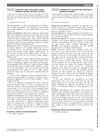 March 2020 in “Section 5: Patient safety and quality assurance”
March 2020 in “Section 5: Patient safety and quality assurance” Tofacitinib and baricitinib had an acceptable level of side effects in rheumatoid arthritis patients.
January 2019 in “프로그램북(구 초록집)” Both tofacitinib and ruxolitinib are effective and tolerable for treating alopecia areata.
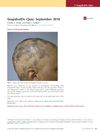 August 2018 in “Journal of Investigative Dermatology”
August 2018 in “Journal of Investigative Dermatology” Tofacitinib may help regrow hair in alopecia areata patients.
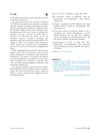 January 2018 in “Journal of the American Academy of Dermatology”
January 2018 in “Journal of the American Academy of Dermatology” Combining pulsed prednisone with tofacitinib can lead to lasting hair regrowth in severe alopecia areata patients.
April 2017 in “Leukemia research” Tofacitinib helped most teenagers in the study regrow hair with mild side effects.
 January 2016 in “Chemistry & Industry”
January 2016 in “Chemistry & Industry” Two drugs, tofacitinib and ruxolitinib, may help regrow hair by activating hair follicles.
 February 2011 in “Annales de dermatologie et de vénéréologie”
February 2011 in “Annales de dermatologie et de vénéréologie” Tofacitinib shows promise for treating severe alopecia areata with good safety and effectiveness.
 March 2021 in “Clin-Alert”
March 2021 in “Clin-Alert” The FDA warned about safety issues with remdesivir and tofacitinib, finasteride is linked to suicidality, potent topical corticosteroids increase osteoporosis risk, henna can cause hemolysis in G6PD deficiency, chemotherapeutic agents can cause adverse reactions, drug interactions are common in cancer patients, ketamine can reduce at-risk drinking, high dose of anticholinergics increases dementia risk in Parkinson's patients, and prenatal exposure to second-generation antipsychotics increases pregnancy complications.



























